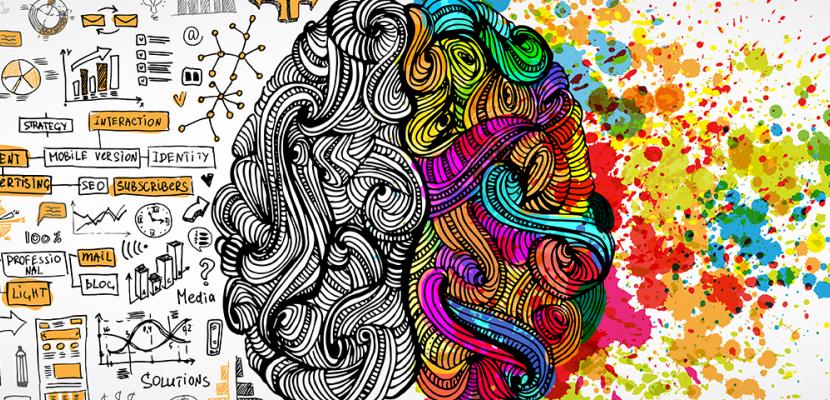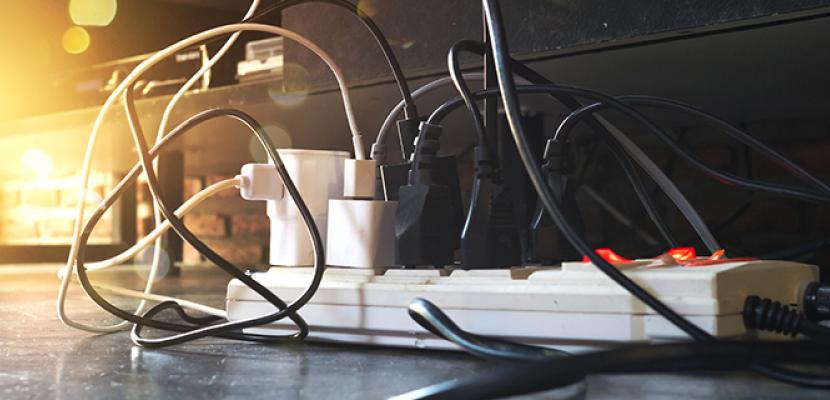
Oops, something went wrong.
Life can be pretty stressful sometimes, especially when you're juggling study, work, and life. But there are some simple changes you can make and strategies you can implement to help to reduce your stress.
Someone who knows a lot about the stresses of life, and how to cope with them, is Associate Professor of Psychology Peta Stapleton. Dr Stapleton has 20 years experience as a registered Clinical and Health Psychologist and was recently named Psychologist Of The Year at the Australian Allied Health Awards.
Take a mindful moment or two and read on for Dr Stapleton's top tips for university students.
1. Get enough sleep
Statistics tell us 20 per cent of the world's population is sleep deprived.
In 1942 an average night’s sleep was eight hours; now it is 6.8 hours. It may be enticing to stay up late (doing uni work or Netflix!), leave things to the last minute and burn the candle at both ends to get that assignment in on time – but it can have long lasting effects. Lack of sleep reduces brain function and cognition, impairing problem solving abilities, concentration, reasoning, and ability to pay attention. In effect, it ‘dumbs you down.’
More than that, insufficient sleep ages you! Lack of sleep causes your body to release cortisol, a stress hormone, excess levels of which can destroy the collagen that keeps skin youthful and elastic. A sleep deficit also makes us more forgetful. American and French researchers, in 2009, concluded events in the brain, coined ‘sharp wave ripples’, are responsible for consolidating memory, and that these events most often occur in deep sleep. So less sleep = less ‘sharp wave ripples’ = increased forgetfulness.
Top tip: Make the time to read The Sleep Revolution: Transforming Your Life, One Night at a Time by Arianna Huffington. It is such a practical guide to quality sleep, and will open your eyes to the issues people have with sleep. Set up a great habit now that will last a lifetime.

2. Break up with emotional eating
Do you tend to overeat at stressful times - for example, studying?
When you are feeling upset, angry, bored or anxious, do you reach for the junk food to make yourself feel better? Ironically unhealthy eating habits, binging and/or poor nutrition just leads to further feelings of anxiety, depression, tiredness, low mood and cravings making it even harder to break the cycle.
Tip: A simple thing you can do next meal is ensure you are sitting down and you remove all distractions. Put down the phone, switch off the TV and feed the cat before you get started. Take a moment to enjoy the meal, chew each mouthful as many times as possible, and appreciate how good it smells and tastes. Research published in the Journal of the Academy of Nutrition and Dietetics has shown this aids digestion, and actually helps you to eat less food, and also make better meal choices.
3. Swap procrastination with productivity
The easiest way to get going is to make a decision to do something - and then just start!
Accept you will not always “feel like it” and act on the task anyway. Motivation always follows action - not the other way around.
Tip: Pick three actions or tasks each day that must be completed, over everything else on your list. Then do the hardest task first before your brain fatigues throughout the day.
Everyone has different rhythms. Some people work better in the morning, some at night. Start becoming aware of this and if you are able to, structure the most important or brainpower-taxing work during these windows. You will increase productivity, in less time.
4. Take back control over technology
For all its uses, too much technology often negatively impacts mental health and stress levels.
Currently, the average adult spends up to five hours each day on their phone. University students are severely affected by nomophobia and mobile phone addiction. “Nomophobia” is the term coined for an irrational fear of being without your mobile phone. Whether running low on battery power, credit or signal causes many people experience this phobic reaction, e.g. sweating, trembling, shortness of breath or breathing difficult, and rapid heartbeat.
There are a number of ways to take back control:
Optimise your mindset. Get your brain off to the best start for the day by not checking phone or social media for an hour upon waking. Declutter your mind, remove distractions – and be alone with your thoughts sometimes! This will help you get out of “Survival Mode” and be more present.
Starting small, see if you can resist checking your device for a small increment of time, say 15 minutes. Using a timer can be helpful in this instance. If you can successfully do this for this small window you will begin to claim back your power and control. Next, increase the time in 15-minute increments. See how far you can get! Studies show a correlation between lower screen time and increased fitness.
Use the ‘Night Shift’ feature on your phone, which will automatically change your screen to a warmer hue at the yellow-orange end of the light spectrum in the evening. This will prevent melatonin affecting blue light from interfering with sleeping patterns and mood and helps to prevent eyestrain.
Implement the 20-20-20 strategy. These means for every 20 minutes you are looking at a screen, you will look away from it for 20 seconds and rest your eyes on something 20 feet away.
Tip: Make sure to clean your screen! University Arizona conducted research which showed the average phone has 10 times the number of bacteria that can be found on a toilet seat! Use antibacterial wipes every day to contribute to maintaining good health.

5. Worry less with the Clear Button Method
It is thought our brains have a 90-second window to turn around any stressful thoughts, before our minds can turn these worries into full-blown anxiety, stress or anger.
With that in min, Don Joseph Goeway, Author of The End of Stress: Four Steps to Rewire Your Brain, recommends practising the Clear Button technique to both distract you, and in turn rewire your thought patterns in less than a minute.
How it works:
Breathe in, count 1, think red
Breathe in, count 2, think blue
Breathe in, count 3, think green
While exhaling, let your mind go totally blank and relax into the present moment
6. Try tapping
Emotional Freedom Techniques (EFT or Tapping) may seem a bit strange and unorthodox but it has incredible results for many. Tapping on pressure points around the body (similar to acupuncture) helps to clear negative emotions and even help memory (e.g. in exams!). In simple terms, it helps calm the nerves in your fight or flight control centre. This is activated when we feel anger, anxiety, or stress – and Tapping helps to release these emotions. Tapping has also shown to be effective for helping with weight control and even cravings.
Learn how to tap your way to less stress and more success and watch the video below.
7. Celebrate the small wins
We tend to only properly celebrate the bigger, impressive, outstanding achievements:
End of year exams. Finishing your degree. Earning a promotion. Getting married.
But if you think about it, most or our lives are spent between these large milestones. Make sure to celebrate the journey along the way, and the smaller wins too.
With thanks to Dr Peta Stapleton.